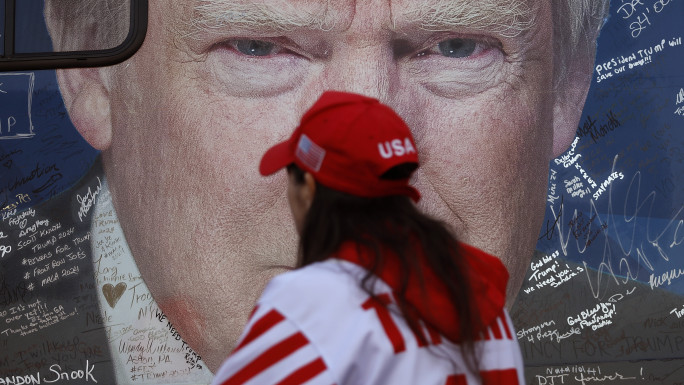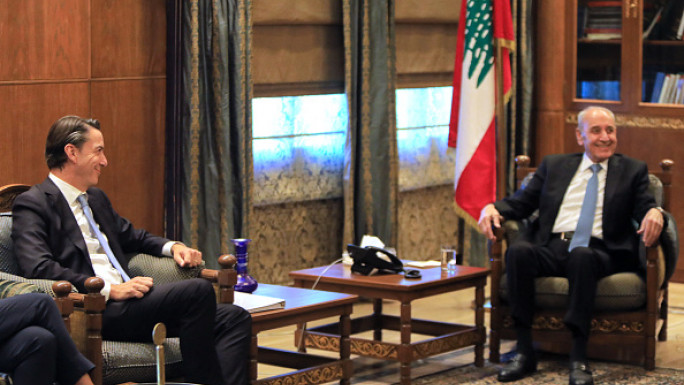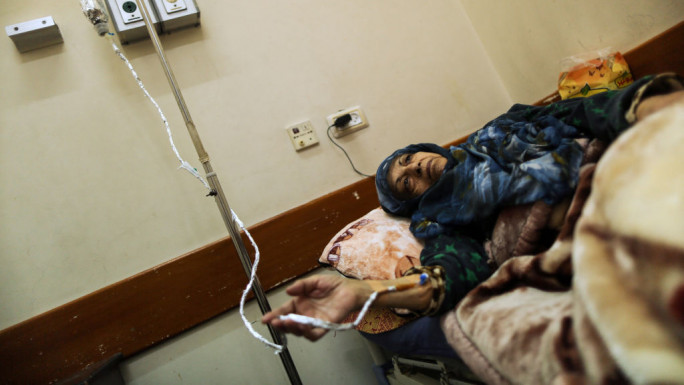'Elections on steroids': Kuwait, under new emir, votes yet again
Election-weary Kuwait voted for the third time in three years on Thursday, just months into the reign of a new emir, but with no end in sight to the major oil exporter's chronic political paralysis.
Parliamentary polls have become an annual occurrence for the OPEC member country, which has seven percent of the world's oil reserves and the monarchical Gulf's most powerful elected assembly.
However, the national assembly's clashes with the royal-appointed cabinet have caused constant stalemate, delaying much-needed reforms.
"These elections are different," retired health worker Sheikha Yaqoub Al-Aziz told AFP after she cast her vote at a women-only polling station in the Jabriya area.
"We hope that the interests of the citizens and the country will be achieved, similar to other Gulf countries and that services will develop."
Almost 835,000 voters can choose 50 MPs from 200 candidates, including just 13 women, in only the second Kuwaiti election held during the Muslim holy month of Ramadan.
The polls' opening hours are midday to midnight (0900-2100 GMT). Results are expected on Friday, followed by the resignation of the first government appointed by the new emir, Sheikh Meshal al-Ahmad al-Sabah.
"Kuwait's participatory politics is unmatched in the region," Kuwait University political analyst Bader al-Saif told AFP.
"Its system requires a reset and urgently needed reforms, no doubt, but the fact that it enables its citizens to express themselves and have a say in governance makes it different."
'Radical reset'
Sheikh Meshal, formerly the world's oldest crown prince, came to power in December at the age of 83 after the death of his half-brother and predecessor, Sheikh Nawaf.
In his inaugural speech to the assembly, he took aim at both the cabinet and parliament and then announced an era of "reform" as he picked Kuwait's first foreign minister from outside the ruling family.
But in February, the national assembly was again dissolved, accused in a royal decree of constitutional violations, including "offensive and inappropriate language" after a lawmaker responded to the emir's criticism.
Thursday's polls, the third since 2022 and the fourth in five years are unusual as the incoming parliament will approve Sheikh Meshal's choice of the crown prince, Kuwait's future emir.
If the assembly rejects his heir in an unprecedented move, Sheikh Meshal will submit three candidates for parliamentarians to choose from.
"This democratic process is different from the previous ones," said Ibrahim Dashti, one of the election candidates.
"The next parliament may contribute to determining who will be the crown prince, that is, who will be the next emir of Kuwait," he added.
The candidates are standing for four-year terms but may serve less than that, given that parliament has been dissolved frequently since it first convened in 1963.
Kuwaitis, a minority in the mainly expatriate population of more than 4.3 million, blame the political standoffs for a sluggish economy, ageing infrastructure and an inability to enact reforms.
Kuwait's new cabinet is the first government under emir Sheikh Meshal al-Ahmed Al-Sabah. It includes the first foreign minister from outside the ruling family.https://t.co/m4g95IREUX
— The New Arab (@The_NewArab) January 18, 2024
Meanwhile, resource-rich neighbours Saudi Arabia, Qatar and the United Arab Emirates are racing ahead with economic diversification plans.
Saif warned that, with no far-reaching reforms in the pipeline, "not much change is expected" in the current election.
"Crises have become a permanent feature of the system," the analyst said.
"Radical reset requires reforming the constitution and going at root causes to avoid cyclical problems and elections on steroids."





 Follow the Middle East's top stories in English at The New Arab on Google News
Follow the Middle East's top stories in English at The New Arab on Google News
![John Thune [Getty]](/sites/default/files/styles/image_330x185/public/2066760536.jpeg?h=a5f2f23a&itok=DQxzSizV)
![A picture shows the occupied West Bank village of al-Eizariya behind Israel's Apartheid wall on the outskirts of East Jerusalem [Getty Images]](/sites/default/files/styles/image_330x185/public/2022-11/GettyImages-1200150515.jpg?h=eec5a94e&itok=Q0NIO_eW)
![The op-ed used spurious Biblical justifications to lay claim to the southern Lebanese city of Sidon [Getty]](/sites/default/files/styles/image_330x185/public/2024-11/GettyImages-149261870.jpg?h=69f2b9d0&itok=d2wjWSis)